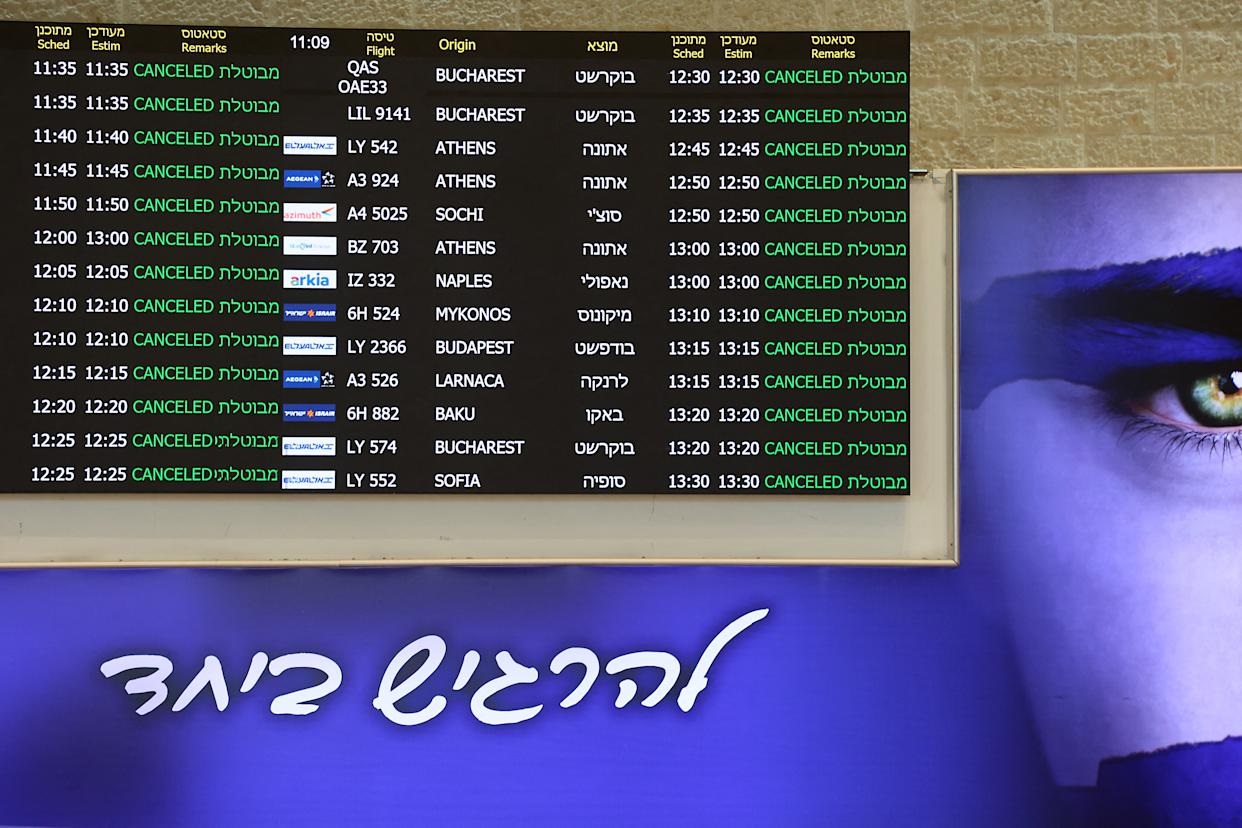As of June 16, 2025, escalating tensions between Israel and Iran have significantly disrupted regional travel, leading to widespread airspace and border closures across the Middle East.
Pakistan-Iran Border Closure
Pakistan has indefinitely closed all border crossings with Iran, including key points in Balochistan’s Chaghi district, Panjgur, and Turbat.
Atta ul Munim, an official at one of the crossings, confirmed the suspension of crossings into Iran “until further notice.”
This decision follows the intensification of hostilities between Israel and Iran, which has led to missiles flying through neighboring countries, affecting regional stability and security.
Airspace Closures and Flight Disruptions
Iran and Israel
Iran has closed its airspace to protect passenger safety amid Israeli airstrikes. The Civil Aviation Authority announced that Iranian airspace would remain closed “until further notice.”
In Israel, Ben Gurion International Airport has been closed “until further notice,” with El Al Airlines suspending all flights until at least Thursday, June 19, and additional cancellations extending to June 23.
Jordan
Jordan has closed its airspace for the second time since Israel’s surprise assault on Iran.
The Jordanian military intercepted some ballistic missiles that had entered Jordanian airspace, prompting the closure.
The country’s airports, including those in Amman, have become critical hubs for redirected flights from the Middle East after airlines suspended travel to and from Israel.
Other Countries
Several countries are preparing to evacuate their nationals from the conflict zone.
Poland’s deputy foreign minister stated plans to route about 200 of its citizens visiting Israel through Jordan’s capital.
India reported that its diplomats are assisting Indian students in Iran, relocating them to safer places within the country.
Cyprus has received official requests to help evacuate citizens of Portugal and Slovakia from the Middle East, with its airports in Larnaca and Paphos becoming critical hubs for redirected flights.
Airline Flight Suspensions and Route Adjustments
The escalating conflict has led to several airlines suspending flights and adjusting routes:
Aeroflot: Cancelled flights between Moscow and Tehran and made changes to other routes in the Middle East.
Qatar Airways: Temporarily cancelled flights to and from Iran, Iraq, and Syria.
Aegean Airlines: Cancelled all flights to and from Tel Aviv up to July 12 and all flights to and from Beirut, Amman, and Erbil through June 28.
Air India: Suspended all flight operations to and from Tel Aviv until at least August 8, 2024, due to the ongoing situation in parts of the Middle East.
Singapore Airlines: Completely halted operations through Iranian airspace.
Lufthansa Group: Halted flights to Amman, Beirut, Erbil, and Tel Aviv and avoided the airspace above Israel, Jordan, and Iraq for the foreseeable future.
Qantas: Added a stop in Singapore for its Perth-London flights to refuel, as the closure of the airspace meant the route would have taken too long and the craft could not carry enough fuel.
These adjustments have led to longer flight times, increased operational costs, and significant disruptions for travelers.
Impact on Tourists and Travelers
Approximately 40,000 tourists are stranded in Israel following the outbreak of the conflict.
The escalating war has led to a chaotic and distressing environment marked by missile attacks and constant air raid sirens.
The situation has forced the cancellation of numerous flights, severely disrupting travel plans and leaving foreigners unable to leave the country.
Many of these tourists had entered Israel via neighboring Jordan and now face uncertainty amid escalating hostilities.
Cyprus has received official requests to help evacuate citizens of Portugal and Slovakia from the Middle East, with its airports in Larnaca and Paphos becoming critical hubs for redirected flights.
Additionally, Croatia reported that 28 of its citizens in Israel have also requested evacuation support.
Conclusion
The ongoing conflict between Israel and Iran has led to significant disruptions in regional travel, with border and airspace closures affecting multiple countries.
Airlines have suspended flights and adjusted routes to ensure passenger safety, leading to increased travel times and costs.
Tourists and travelers in the region face uncertainty and challenges in securing safe passage out of affected areas.
The international community continues to monitor the situation closely, with efforts underway to assist stranded nationals and facilitate evacuations.







